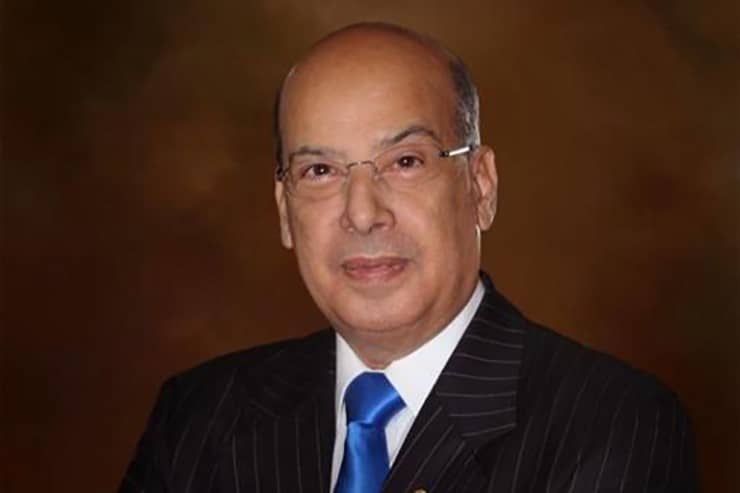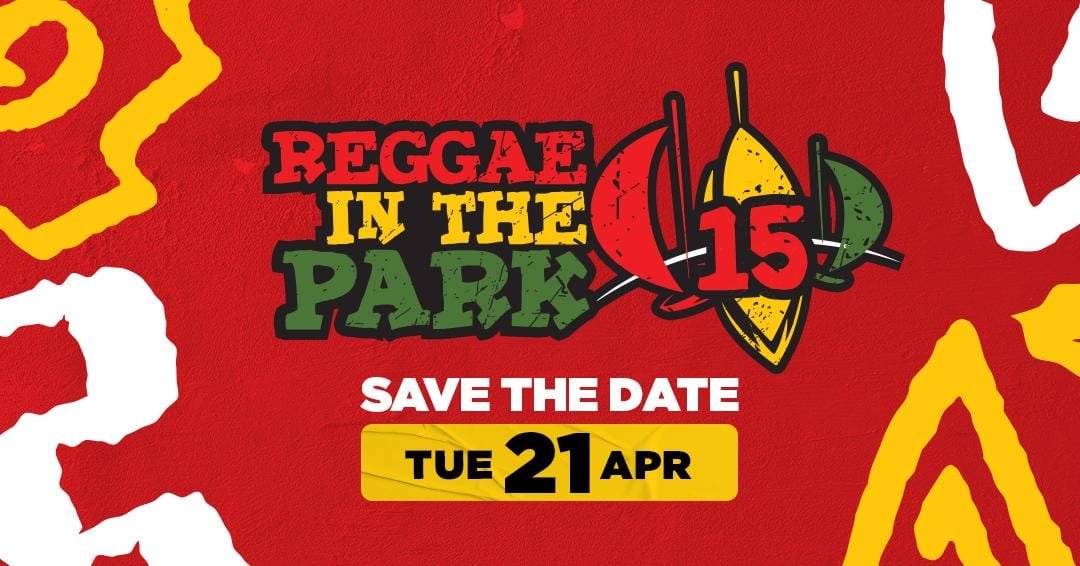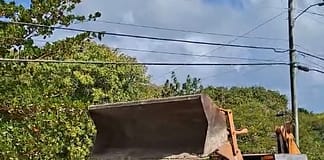
CLICK HERE TO JOIN OUR WHAT’S APP GROUP
A New World Order—or the formal admission of the Old?
By Sir Ronald Sanders
The world has long spoken of a “rules-based order,” as though the law itself held dominion over power. Yet, behind the diplomatic courtesies and the fine print of charters, it was power that wrote the rules and altered them at will.

The difference today is that the altering is done in full view and only a few feign surprise.
We all knew what the Order was even when we hoped for better.
We knew it in World Trade Organization negotiations when our cries for special and differential treatment for small states in trade relations fell on deaf ears.
We knew it in Climate Change negotiations when our pleas for a loss and damage fund evinced a sop, not a solution.

From the Treaty of Westphalia in 1648 to the Charter of the United Nations in 1945, the international system has proclaimed the sovereign equality of states. In practice, this has always been more aspiration than achievement.
Legal sovereignty – the declared right to be free from interference – belongs to all; political sovereignty – the power to act without permission – belongs to the few
The theorists of pluralism have long argued that sovereignty has never been absolute, but continuously bargained, constrained, and reshaped by circumstance. Small and powerless countries know this truth by experience, not by theory.
The difference in the present circumstances is bluntness.
The restraint that once moderated power – or at least gave a pretence of negotiation and respect for state rights – has given way to open display of might.
Commitments to multilateral cooperation are treated as conveniences; treaties are interpreted as optional; international courts are ignored.
The change is not in achieving objectives; it is in the tossing aside of pretension. Power no longer feels obliged to disguise itself in contrived negotiations.
For small states, this unmasking is more than academic. Their sovereignty is not an instrument to dictate to others; it is a fragile shield of defence – the space within which they may choose their partners, legislate their priorities, and speak their truths. When that space contracts, their independence becomes more ceremony than substance.
This tension is now evident in the Caribbean Community (CARICOM), where half a century ago four leaders -Michael Manley, Errol Barrow, Forbes Burnham, and Eric Williams – declared the region a Zone of Peace.
It was a visionary pledge: that the Caribbean’s destiny would not be shaped by the rivalries of distant powers. Yet, as former Jamaican Prime Minister P. J. Patterson recently warned, that pledge is under threat.
He described as “fundamentally dangerous and a horrible erosion” the intrusion of external military operations into Caribbean waters – actions which have been justified in the name of security which appear to be unmindful of sovereignty, if not of law.
None of this denies the value of cooperation against transnational crime; it insists only that such cooperation be anchored in international law, transparency, and respect for regional consultation.
Patterson’s concerns are not about who acts, but what the action signifies: that even within the waters the Caribbean calls its own, decisions are made elsewhere.
And while the Caribbean Community has often spoken of “collective sovereignty,” the truth is that each nation, bound by economic and security dependence, has often pursued its own accommodations with external powers.
Dependence invites compromise of the very sovereignty so often declared.
This is the paradox of small states: they depend on the international rule of law but are powerless when it is ignored. Sanctions regimes are threatened or imposed without UN mandate – as the OECD and the European Union have done on financial services; trade restrictions are justified by assertions of unfair trade deficits, even though Caribbean small states have no surplus with any trading partner – Guyana is now an exception only in the area of oil and gas sales; human-rights mechanisms are starved of funds or credibility.
In reality, poor and powerless countries have lived in a world order where justice has nominally existed, but enforcement has not. So, when the present international situation suggests that we are moving to a “new world order,” we should ask: what is new? The only thing new is the bluntness with which power is exercised. The hierarchy has always been there – now only some pretend otherwise. We are witnessing not the birth of a new order, but the formal admission of the old: an order in which might makes the rules.
For small nations, the implications are sobering. Sovereignty may soon mean no more than the right to manage domestic affairs, provided they do not offend the ideologies or interests of those who command the oceans, the markets, and the security umbrella.
Yet, the response of small states cannot be withdrawal or despair. It must be steadfast insistence on the language of law and principle – not because it always protects us, but because without it there is nothing left to which to appeal. The rules-based order may be throwing off the disguise of legal robes, but its vocabulary still defines the terrain. The Caribbean’s security and prosperity have long benefited from principled partnerships with larger democracies; their appeal should be to keep those partnerships squarely within the framework of law.
In the Caribbean Community, governments will have to understand and tolerate why some amongst them, in their national interest, have to be more accommodating of larger powers. They will also have to accept that “collective sovereignty” cannot be exercised if it invites individual punishment.
The challenge, then, is not to submit to the emerging new world order dominated by power and might, but to prevent the old one from becoming unashamedly permanent. For when law is silenced and power alone speaks, the ladder of equity collapses, leaving the powerless helpless at the bottom. Caution is now required, but so is courage.
(The author is the Ambassador of Antigua and Barbuda to the United States and the OAS, and Dean of the OAS Ambassadors accredited to the OAS. Responses and previous commentaries: www.sirronaldsanders.com)
CLICK HERE TO JOIN OUR WHAT’S APP GROUP
CLICK HERE TO JOIN OUR WHAT’S APP GROUP
CLICK HERE TO JOIN OUR WHAT’S APP GROUP
CLICK HERE TO JOIN OUR WHAT’S APP GROUP
CLICK HERE TO JOIN OUR WHAT’S APP GROUP
CLICK HERE TO JOIN OUR WHAT’S APP GROUP
CLICK HERE TO JOIN OUR WHAT’S APP GROUP
CLICK HERE TO JOIN OUR WHAT’S APP GROUP
CLICK HERE TO JOIN OUR WHAT’S APP GROUP
CLICK HERE TO JOIN OUR WHAT’S APP GROUP
Advertise with the mоѕt vіѕіtеd nеwѕ ѕіtе іn Antigua!
We offer fully customizable and flexible digital marketing packages.
Contact us at [email protected]















Sir Ronald, once again you write a though provoking article. One that I don’t believe will have an audience on this website. Sorry to say but the many comments here on this site tell me the level of intellect displayed and the language they use. Your world view stems from your age and where you went to university. In those days we were rebellious against the Capitalistic views of the USA. We call it Imperialism. And sad enough Americans still see socialism as a big evil. However, they still love their social security, but they will not agree to national healthcare for all. They believe it should always be every man/woman for themselves and God for us all. But not when it comes to defending the country. That is when they are all united and then it is every man/woman for the sake of the Country. That is their form of patriotism. Americans will die defending the property right of their billionaires all around the world. No wonder they will never let go of Cuba, and the same thing that happened to them in Venezuela. Your country Guyana is next. Your oil is really not yours. It is controlled by the USA oil barons. And should you ever threaten that right you will get to know them from a different side. You speak from a standpoint of having much more information than me. But for what it is worth I do not agree with your conclusion.
Yes, in life I prefer to have people show me who they are and what they are all about. We used to call people we hide their real feelings ‘Diplomats”. You seem to take off your diplomatic hat to pen your personal opinions here. This President in the USA is not a Diplomat either. He gives it to the world raw. I therefore admire him for that. Make no mistake. I do not like their stand at all. It’s the same Imperialism in a different package. There is no rule base society when the rule only applies to some. Therefore, I would say, why be part of fraud? The UN has become or always was a fraud. A make-believe institution. Well, we have outlived that make believe institution. Let’s go back to the law of the strongest. What it was all the time anyway. At least we know we don’t have any power to demand that the USA pay us damages for the WTO case we brought against them. Why don’t they just invade us and become colonies of the USA. Because our so-called sovereignty is not real. We are living in a fake world. We cannot choose our own friends. Because if the great USA doesn’t agree with our choice of friends, they will pressure us to choose. And the choice is clear. Or are we ready to suffer on behalf of our friend. Not even God pressures us to choose. So, since we are allowed to pretend as if we can make our own choice, let us do so and see when we will be stopped and corrected. I fear the day will come when we have hard choices to make. China or the USA. Before the choice was between Russia or the USA and that was an easy choice. I mean they have planted in our head how bad Russia was when it had communism. Now Russia is a Democracy they now say the leader is a tyrant. And all he wants is to dominate the free world. Notice the playing of the words Free World. How Free are we if we cannot make our own decisions. If we cannot choose our own leaders. Maduro did not elect himself as president. There were elections held and he won. In Guyana Irfan Ali won the last elections again amidst lots of allegations of voter fraud. But we still recognize him as the elected leader. What is so different from Venezuela. Saddam Hussein was said to have Weapons of Mass Destruction. Years after the man that made the case admitted he was given false information. But aside his admission, was anyone punished for the damaged caused to the Iranians. The hundreds and thousands in deaths. I guess when you have a license to kill it doesn’t matter. We have seen it right here at home. Small boats are blown up under the assumption of being drug smuggling boats. No evidence presented. And tell me with such a large military presence why not arrest them. Why not sent a few helicopters to apprehend them and bring them and the drugs to court and make your case? Well, License to kill. Anyone anywhere in the world as you chose. And this is not about Trump. This is the USA using its power as they see fit and no one can hold them accountable. It’s that simple.
So you plea to stay in the fake UN and keep speaking as if your words are heard and will make a difference? Good Luck. I live with reality. The USA is the World Dominating Force. Just like England once was. Just like Rome once was, just like Greece once was, just like Egypt once was. There is a time for everything under the sun. Kingdoms rise and Kingdoms fall. Even the Turks had their time. Hitler wanted that time, but it wasn’t to happen. Slavery lasted for Four Hundred Years. If you were from African Descent, you would have had some appreciation for that. But that also came to past. When will it end. As a Christian I am made to believe, it will all end when Christ returns. Meantime. Try to live a good and Godley and God Fearing Life.
For we wrestle not against flesh and blood, but against principalities, against powers, against the rulers of the darkness of this world, against spiritual wickedness in high places. Ephesians 6:12
I don’t ordinarily comment but I gotta state thanks for the post on this special one : D.
Comments are closed.